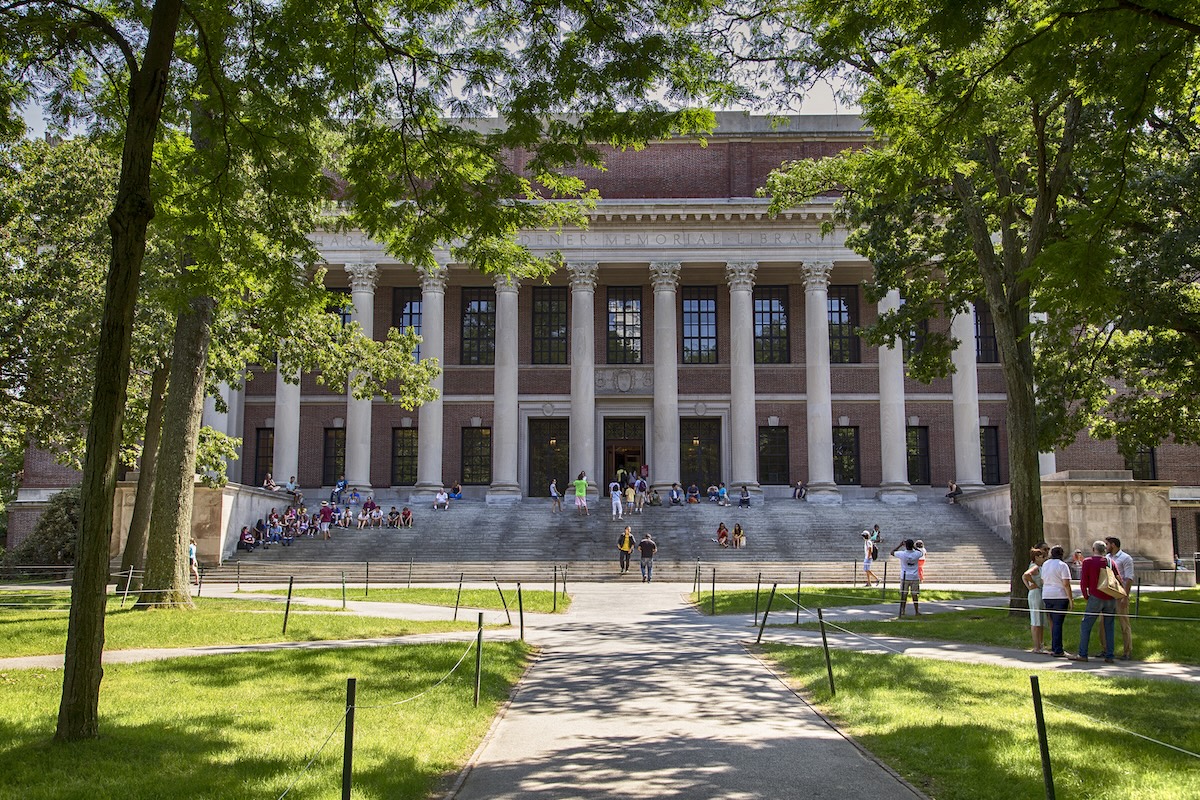Free Tuition At Harvard For Families Making Under $200K


Harvard University announced it will offer free tuition to students from families earning up to $200,000 a year, a move that significantly broadens its financial aid program and places the university among a small but growing list of elite private universities expanding access for middle-income families.
The policy, which begins this fall with the 2025-2026 school year, is expected to make the school more affordable for roughly 86% of American households. For students whose families make less than $100,000 annually, the university will go further: all costs, including housing, food, health insurance, and travel, will be fully covered.
The initiative is part of a broader shift among highly selective colleges seeking to counteract rising public skepticism about higher education costs. Harvard’s estimated cost of attendance exceeds $80,000 per year when factoring in room, board, and other expenses. Interestingly, this doesn’t even get Harvard on the list of the most expensive colleges in America.
Until now, Harvard’s most generous financial aid was reserved for families earning under $85,000, who qualified for full tuition waivers. By more than doubling that threshold, the university acknowledges the pressure that middle-income families face in paying for elite college tuition, even with existing financial aid formulas. Historically, low and middle income students don’t attend at the same rates as wealthier students, even if admitted. This trend of undermatching has long been an issue.
The shift means that many students whose parents earn what would traditionally be considered a stable income, such as public school teachers, nurses, and small business owners, could qualify for aid previously out of reach.
According to Harvard, families earning $100,000 or less will receive full coverage of tuition and non-tuition expenses. For families earning between $100,001 and $200,000, tuition will be covered entirely, though room, board, and other costs may require some contribution depending on the specific income level and financial circumstances.
The university uses a need-blind admissions policy for U.S. students and meets 100% of demonstrated financial need. The school calculates aid based on a family’s income, assets, and other factors such as home equity and the number of children in college.
Aid will not come in the form of loans – making it a no-loan college. All financial support is provided as grants that do not need to be repaid. Harvard reports that more than half of its students already receive some form of need-based financial aid.
Harvard’s announcement follows similar moves by other institutions. The University of Pennsylvania and the Massachusetts Institute of Technology now provide free tuition for families earning under $200,000. Public universities such as the University of Texas have expanded their own tuition programs to include families earning up to $100,000.
Other private universities, including Dartmouth and the University of Virginia, have also increased income thresholds for financial aid. These expansions reflect rising pressure on institutions to address public concerns about tuition and student debt, especially amid political debates over the value of a college degree.
The announcement comes as the Trump administration has proposed cuts to higher education funding and signaled skepticism about the cost and value of traditional colleges. Despite these political headwinds, elite schools are continuing to use their endowments and alumni support to widen access.
Harvard’s move is expected to influence other institutions, particularly those with large endowments. The school’s financial aid budget will increase, but university officials say the change is sustainable.
The policy also arrives amid declining confidence in higher education, especially among middle-income Americans who have grown skeptical of the price tag and returns. By covering tuition for a broader share of applicants, Harvard aims to reassert its commitment to affordability and inclusion.
Don’t Miss These Other Stories:

Student loans often follow borrowers for years, sometimes decades. Even people who fully understand how much they borrowed can feel...

It was a busy week for RIA aggregators. There were a few large moves, including $235 billion multi-family office Cresset...

Blog Posts Archives UnfavoriteFavorite February 27, 2026 Weave: The Social Fabric Project Subscribe to Weave’s Newsletter This story was originally...